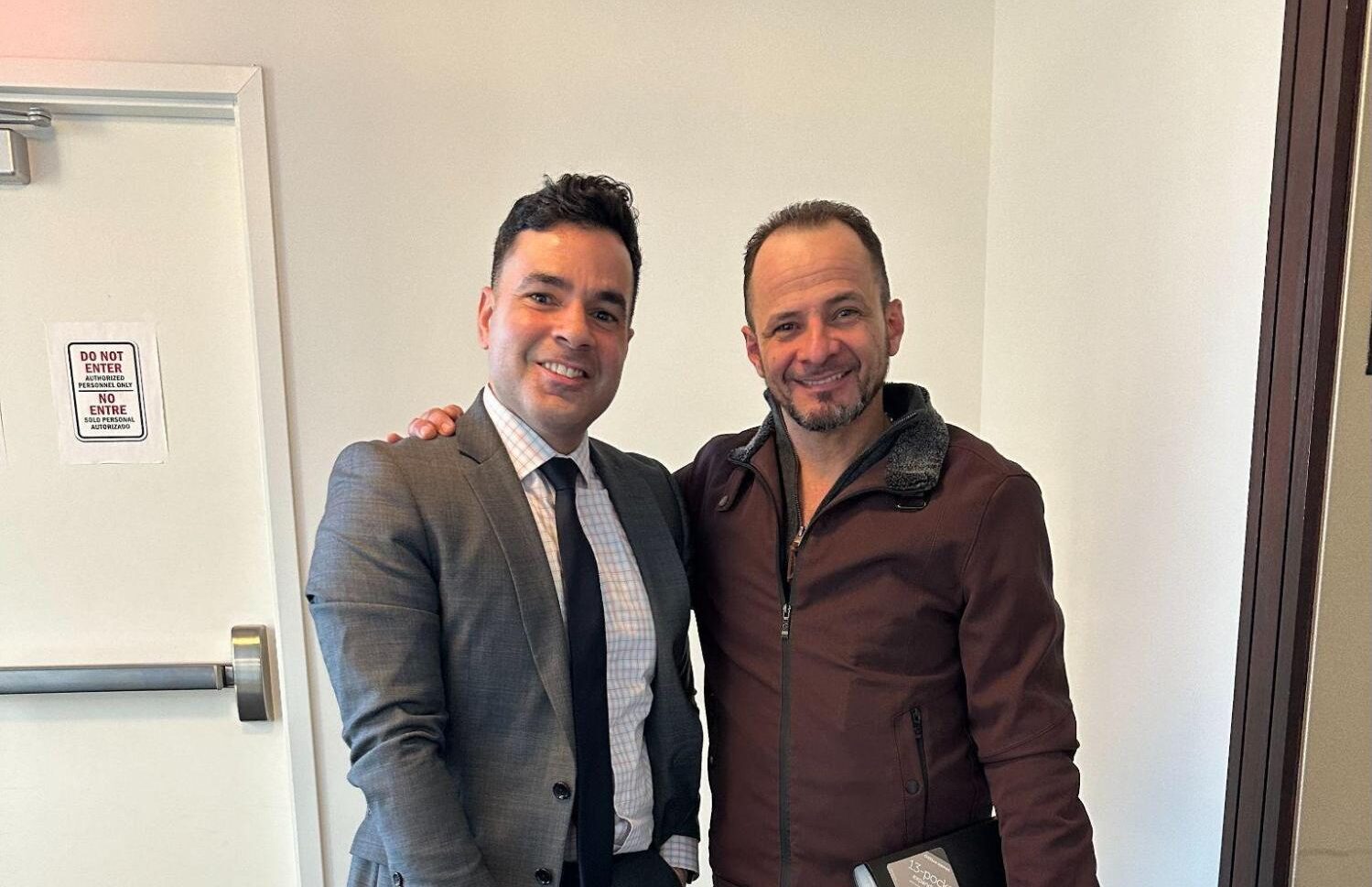EE.UU. de Inmigración y Aduanas (ICE)
EE.UU. de Inmigración y Aduanas (ICE) es responsable de la detención y expulsión de los no ciudadanos. Una de las prioridades de la agencia es la eliminación de los no ciudadanos en las cárceles y prisiones. ICE con la cooperación de agentes de la policía o de ley generalmente identifican a esos individuos para deportarlos haciéndoles preguntas y ejecutando diversos controles informáticos (por computadora). En muchos condados, los agentes de inmigración en cooperación con la policía local, entrevistan a los no ciudadanos acusados o en un juicio en las cárceles locales para determinar si pueden ser objeto de deportación o expulsión basándose en crímenes cometidos en el pasado o en la falta de estatus migratorio. Ellos están particularmente interesados en identificar a las personas que han sido previamente deportados o tienen una orden de deportación.
ICE debe emitir un documento comúnmente referido como “detenido” a una cárcel local o establecimiento penitenciario cuando se busca la custodia de una persona en esa instalación a efectos de iniciar un procedimiento de deportación. Una orden de detención puede ser colocada junto a un cliente sin estatus legal antes del juicio, porque la persona por lo general no tiene motivos para permanecer en los EE.UU., independientemente del resultado de la causa penal. Un cliente con estado legal de inmigración generalmente no es sujeto a una orden de detención de inmigración antes de la conclusión de la causa penal, a menos que él o ella tenga cargos penales antes del juicio o está sujeto por ese crimen a ser deportado o haya tenido una deportación. Las ordenes de detención también se presentan contra los no ciudadanos que cumplen penas de prisión de conformidad con la sentencia o pena dada.
Generalmente, una orden de detención de inmigración es una solicitud a una agencia del orden público local (cárcel local) para detener a un individuo por un máximo de 48 horas al menos que la persona sea puesta en libertad porque no hay meritos para estar detenida (sin incluir sábados, domingos y días festivos), a fin de proporcionarle a ICE la oportunidad de asumir la custodia de esa persona. El período de 48 horas comienza a correr desde que la persona ya no está sujeto a la detención por parte de la policía local, haya pagado una fianza para salir en libertad o ya ha cumplido la sentencia en dicha cárcel o prisión. Si el detenido se tiene que presentarse a juicio o pide fianza para salir en libertad durante el juicio, ICE debe asumir la custodia de él o ella. Si ICE no asume la custodia de la persona durante el período de 48 horas, el individuo debe ser liberado inmediatamente. La cárcel local o establecimiento penitenciario ya no tiene la autoridad para detener a una persona una vez que la detención ha terminado.
Una orden de detención de inmigración a menudo es presentada en contra de un cliente antes de que él o ella tenga la oportunidad de pagar la fianza. En estas circunstancias, si el paga la fianza, ICE tiene la autoridad para asumir la custodia inmediata de él o ella. Si ICE ejerce su autoridad y toma a su amigo o ser querido en custodia, él o ella puede ser enviada a una de las cárceles de inmigración en otro estado para comenzar el proceso de deportación.
La persona puede ser elegible para pagar una fianza mientras está en proceso de deportación.
Estos procedimientos pueden durar mucho tiempo y si usted es capaz de pagar la fianza, es muy recomendable. Muchos clientes con antecedentes penales, sin embargo, no son elegibles para libertad bajo fianza de inmigración y por lo tanto serán detenidos a la espera de un proceso de deportación.
Una vez que el individuo ha sido transferido a la custodia del ICE se le da un número de identificación o un numero de extranjero que empieza con la letra “A” (un número de seguimiento). También se le permitirá realizar llamadas de teléfono y puede ser elegible para una visita familiar.
Introduction To Fayad Law, P.C.

Have questions about your rights? Ready to discuss your
immigration case? Contact Fayad Law, P.C. now.
What Sets Fayad Law, P.C. Apart?

Firsthand Experience
as Immigrants

English, Arabic, French,
Russian, Spanish, and Farsi

Proven Track
Record of Success

Personal, One-on-One
Attention

You Stay Informed
at All Times

We Strive for Client
Satisfaction
FAQs - FREQUENTLY ASKED QUESTIONS
There are dozens of different types of visas available under the provisions of the Immigration and Nationality Act (INA), but they can all be placed in one of two categories: immigrant and nonimmigrant visas. The former is for individuals who are hoping to establish permanent residency with a green card and perhaps even to pursue the path to naturalization and citizenship. The latter is for those who are only planning a temporary visit to the United States, such as for the purpose of conducting business or attending school.
The INA sets limits on the number of people who will be permitted to immigrate to the United States each year using certain types of visas, while other visas are unlimited. Family immigration visas for the immediate relatives of U.S. citizens are available on an unlimited basis, while there are annual quotas set for the relatives of lawful permanent residents and extended family of citizens, with a maximum quota of 480,000. The number of employment immigration visas is limited to 140,000 per year.
Pathways to citizenship include service in the United States military and adoption, but a large percentage of all people who become citizens do so through the process of naturalization. The basic qualifications for naturalization include:
- Living in the U.S. as a permanent resident for 5 years (or 3 years for a spouse of a U.S. citizen)
- Being at least 18 years of age
- Living within the state where you will apply for citizenship for at least 3 months prior to the application date
- Being physically present in this country for at least half of the past 5 years
- Maintaining continuous residence in this country from the date you submit your application for naturalization
- Being able to read, write and speak English
- Have a basic understanding of U.S. government and civics
It is also necessary to supply evidence that you are a person of good moral character and are attached to the principles of the U.S. Constitution. We can assist you with proving these factors, as well as preparing your petition and helping you get ready for the tests.
In June of 2012, the Obama Administration directed the Department of Homeland Security (DHS) to begin applying a policy that is referred to as Deferred Action for Childhood Arrivals (DACA). Under deferred action, DHS is exercising discretion in its execution of the laws concerning deportation and removal of immigrants who are illegally present in the United States. Deferred action is not a change to the existing law, but is instead a change in the way that the law is being applied. You may qualify for relief under DACA if you were younger than 31 years of age on June 15, 2012, came to the U.S. before your 16th birthday, have continuously resided in this country since June 15, 2007 and are either currently in school or have already graduated from high school or earned your general education development (GED) certificate, among other criteria. With deferred action, you may be able to avoid being deported, though it does not grant any change of immigration status.
In its review of immigrant visa petitions, the U.S. Citizenship & Immigration Services (USCIS) weighs factors related to the ties that the prospective immigrant has in the United States and the reasons why he or she wants or needs to come to live in this country. For example, a family immigration petition will not be approved unless the foreign national has immediate relatives such as a spouse, mother or father, child or sibling already living here as a citizen or green card holder. An employment immigration petition is more likely to receive approval if the applicant has a job offer in this country and is coming to fill a position that cannot reasonably be filled from the local labor market. A foreign national who is fleeing persecution in his or her home country may be granted an immigrant visa as a refugee or asylee.
There are many strategies for challenging a removal action. If the proposed deportation is based on a criminal conviction, it may be possible to appeal the conviction in order to have it overturned. Another option is to petition for cancellation of removal, a type of immigration relief which is available to people who are of good moral character and whose deportation would subject a family member who is a citizen or permanent resident to extreme hardship. The key to success in stopping deportation is to take immediate action by hiring a Virginia immigration attorney from our firm as soon as possible. Contact us now at Fayad Law, P.C. for a confidential consultation and to let us get started on your case!
Fayad Law, P.C. maintains offices in Richmond and Fairfax, Virginia. We work with individuals, families, and businesses across the world, providing them with assistance in resolving the legal issues involved with helping their loved ones and employees to immigrate to the United States. We work directly with foreign nationals living abroad, guiding them through the process of obtaining immigrant and nonimmigrant visas for entry to the U.S.
Real Clients, Real Testimonials
Contact Us Today
Have questions about your rights? Ready to discuss your immigration case? Contact Fayad Law, P.C. now.



















